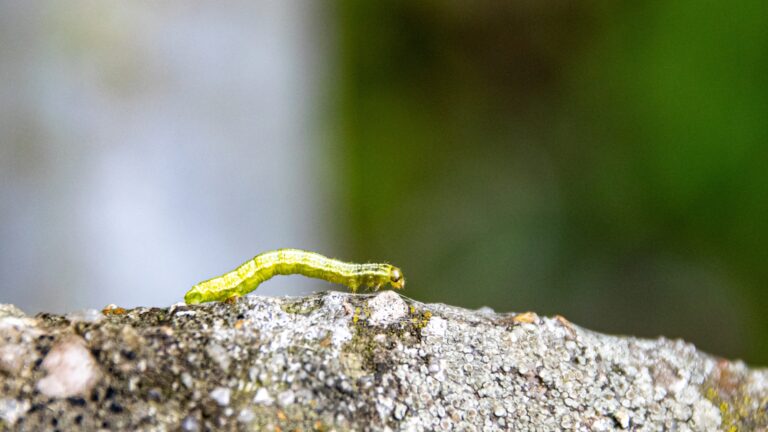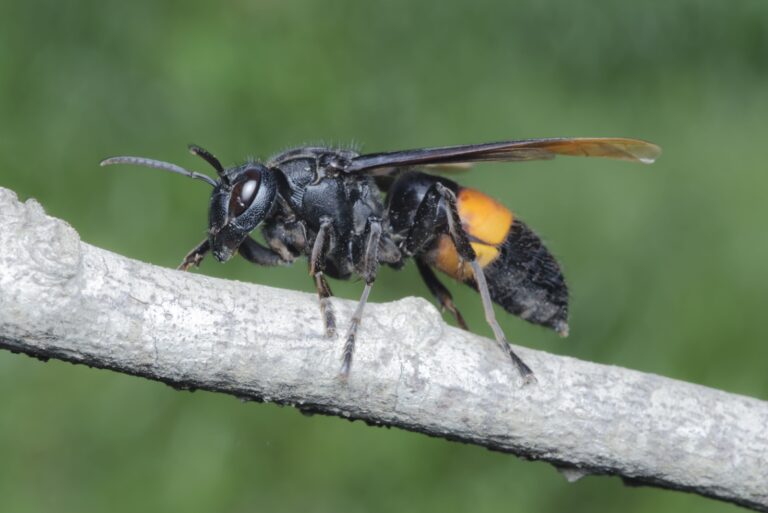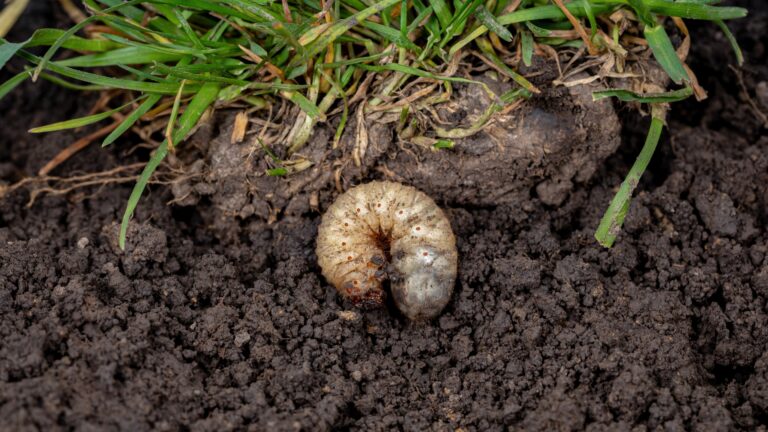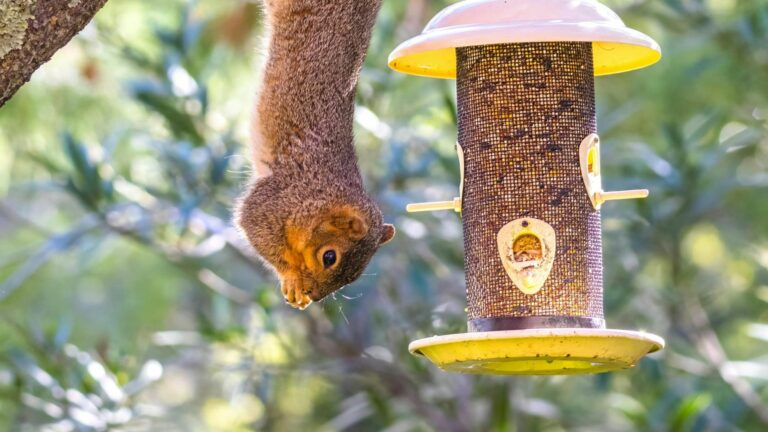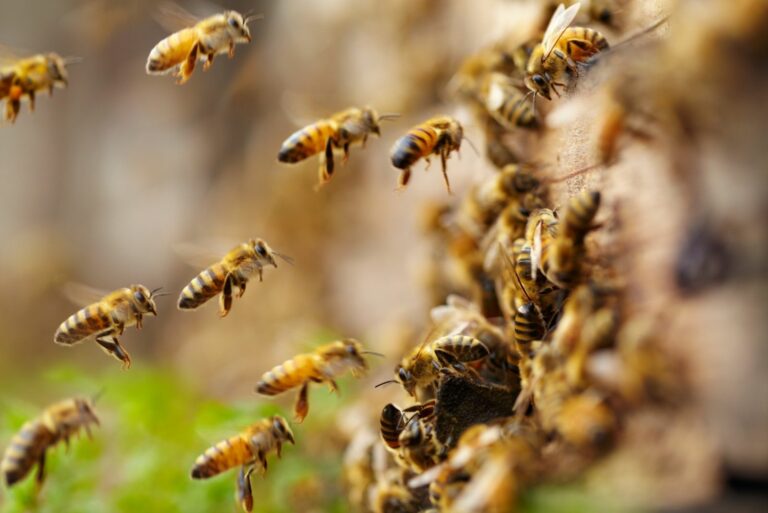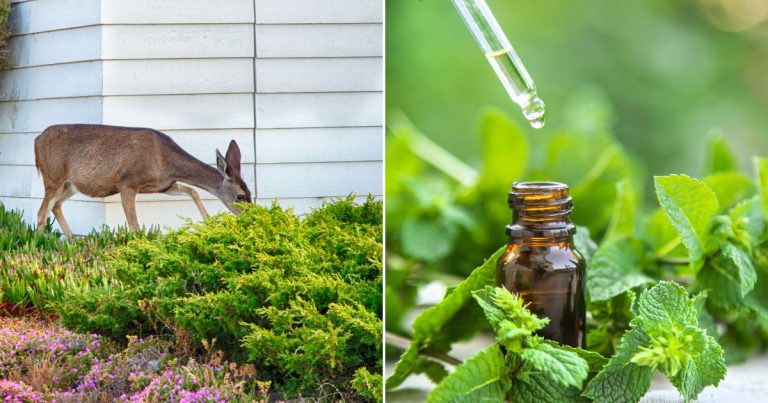8 Things Arizona Homeowners Should Know Before Removing Possums
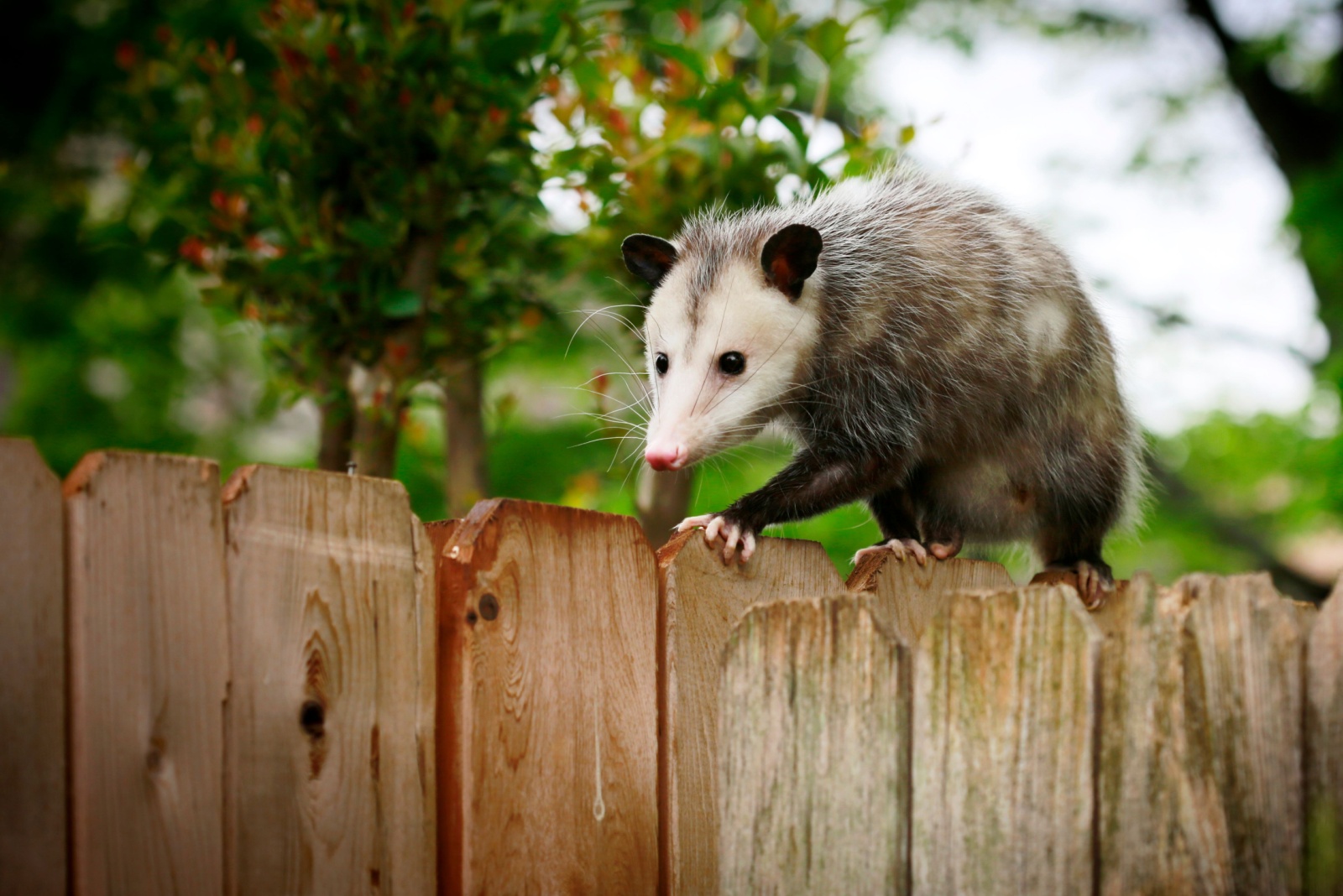
Possums have become regular visitors in Arizona backyards, often sneaking around our garden beds after dark. In my own Tucson yard, I’ve watched these nocturnal creatures navigate between my prized vegetable patches and fruit trees.
Before you rush to remove these misunderstood marsupials from your Arizona property, there are some important facts you should know about their habits and benefits.
1. Why Possums Appear In Arizona Gardens At Night
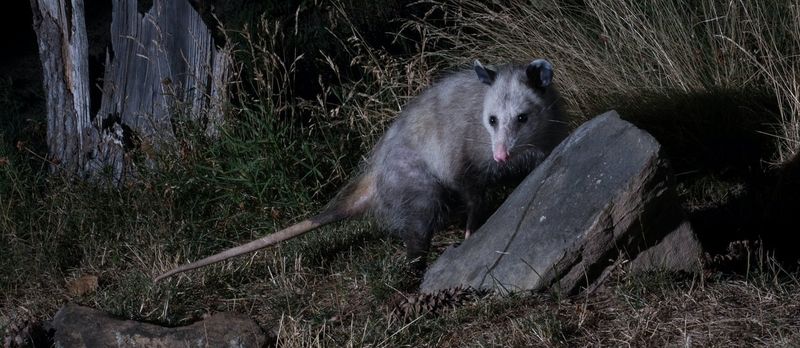
Possums are nocturnal opportunists searching for food and shelter in our Arizona landscapes. They’re attracted to fallen fruits, vegetable gardens, and water sources that many homeowners provide unintentionally.
My desert garden became a possum hotspot last summer when my peach tree dropped fruit faster than I could collect it. These marsupials aren’t being invasive – they’re simply following their natural instincts to forage.
Arizona’s expanding suburbs push further into desert habitats each year, creating more encounters between homeowners and local wildlife like possums seeking new territory.
2. The Helpful Role Possums Play In Controlling Pests
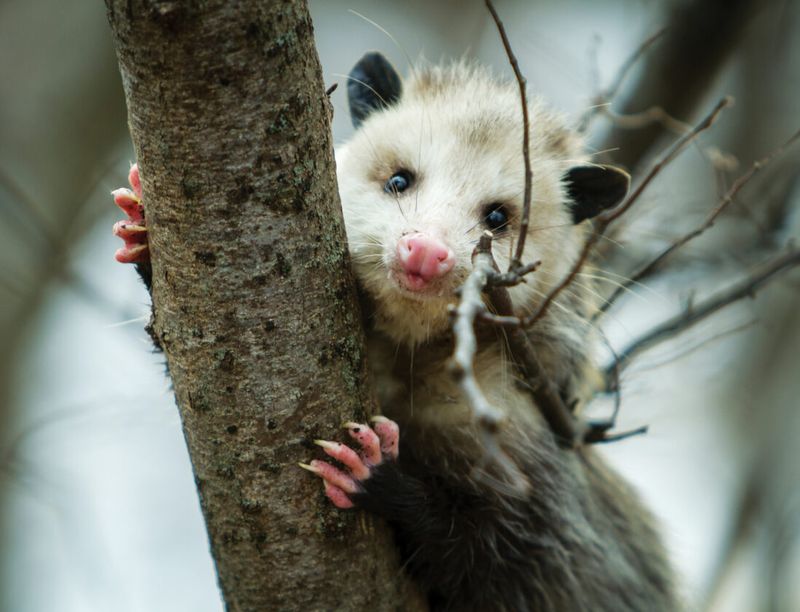
Natural pest controllers, possums consume thousands of ticks, cockroaches, and other problematic insects weekly. One possum can eat up to 5,000 ticks in a single season – a significant benefit for Arizona homeowners battling pest problems.
Scorpions, which plague many Arizona properties, are actually on the possum’s menu. I stopped seeing as many scorpions around my patio after a family of possums took up residence under my shed last year.
Garden pests like snails and slugs that damage vegetables are favorite snacks for these marsupials, making them unofficial garden helpers rather than nuisances.
3. Common Plants And Crops Possums May Target
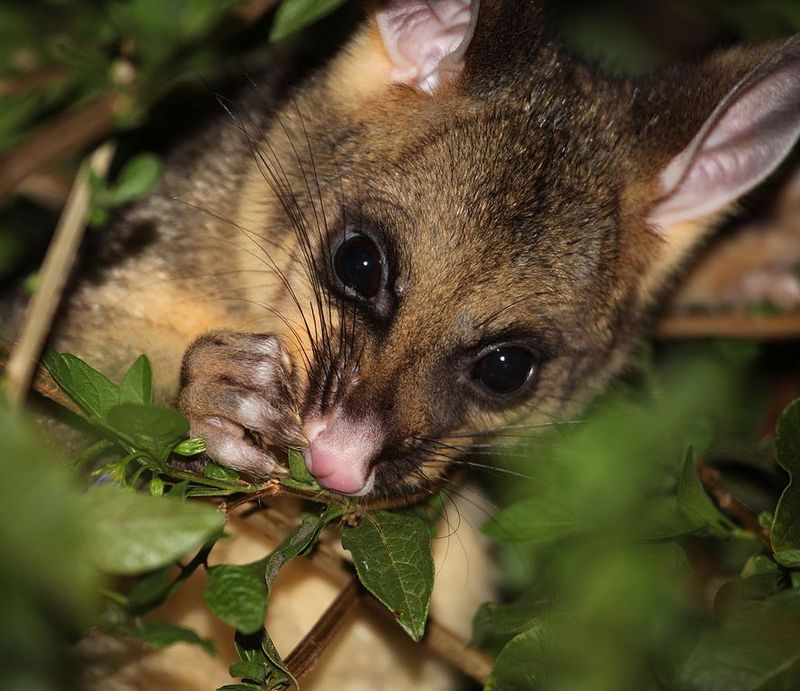
Ripe fruits top the possum’s preferred menu in Arizona gardens. My pomegranate and fig trees became midnight snack bars before I installed protective netting around the lower branches.
Vegetable gardens can suffer damage, particularly tomatoes, strawberries, and melons. The frustration of finding half-eaten produce is something many Arizona gardeners understand all too well.
Contrary to popular belief, possums rarely dig up root vegetables or disturb established plants. Their feeding habits typically focus on accessible, already-ripe fruits rather than destroying entire garden beds.
4. How Possums Affect Fruit Trees And Vegetable Beds
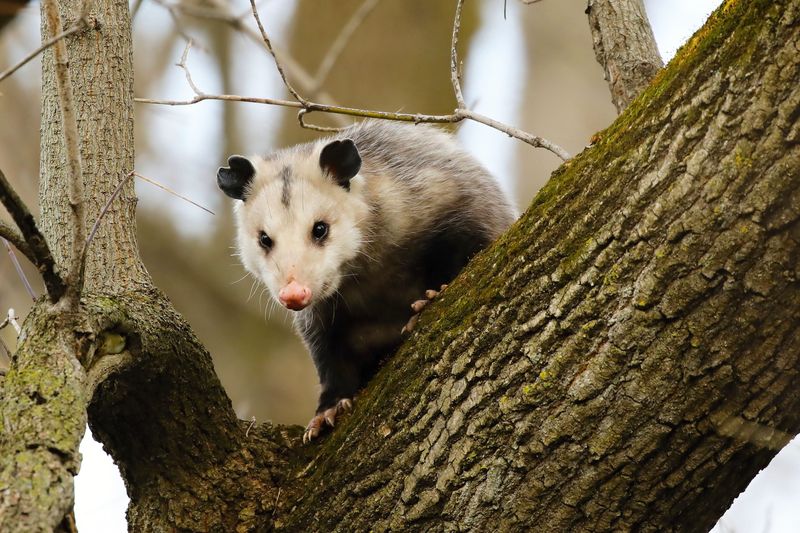
Fruit trees suffer the most damage from possum visits, especially those with low-hanging branches. After losing half my apricot harvest last spring, I learned to harvest ripe fruit promptly and install collar barriers on tree trunks.
Raised vegetable beds offer some natural protection from possums, who prefer easy access. My elevated planters have remained mostly untouched, while ground-level growing areas required additional protection measures.
Night feeding can sometimes be mistaken for other wildlife damage. Setting up a simple trail camera revealed that birds and ground squirrels caused more vegetable damage in my Arizona garden than the occasional possum visitor.
5. Legal Considerations Before Trapping Or Relocating Possums In Arizona
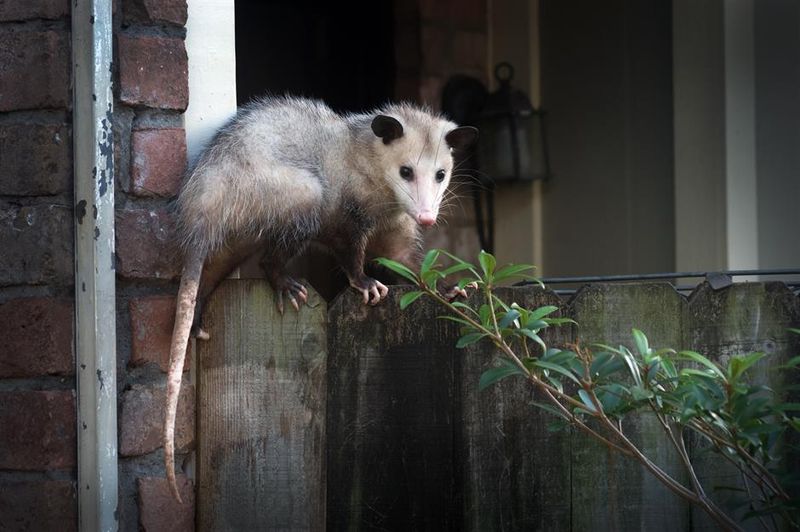
Arizona wildlife laws protect possums under specific regulations that many homeowners don’t realize. Trapping and relocating wildlife without proper permits can result in fines, something I nearly learned the hard way when considering DIY removal.
Licensed wildlife control operators are often required for legal removal. The Arizona Game and Fish Department can provide guidance on finding authorized professionals who follow humane practices.
Relocating possums yourself may seem kind, but can actually harm the animal. Possums placed in unfamiliar territory often cannot find adequate food and water in our harsh desert environment, especially during summer months.
6. Safer Alternatives To Keep Possums Out Of Gardens
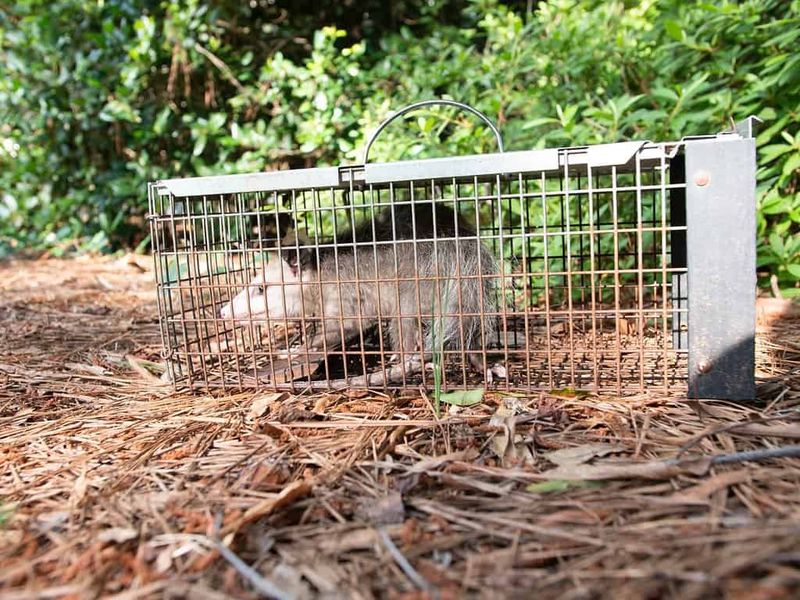
Motion-activated sprinklers have been my most effective deterrent. Possums dislike sudden water sprays, and these devices conserve water by only activating when movement is detected – perfect for water-conscious Arizona gardening.
Strategic fencing with buried edges prevents possums from digging underneath. After installing 12-inch deep metal mesh around my prized vegetable patch, nighttime raids stopped completely.
Natural repellents like predator urine, hot pepper spray, or ammonia-soaked rags create boundaries possums prefer not to cross. My experience suggests rotating different deterrents prevents possums from becoming accustomed to any single method.
7. When Professional Wildlife Removal Becomes Necessary
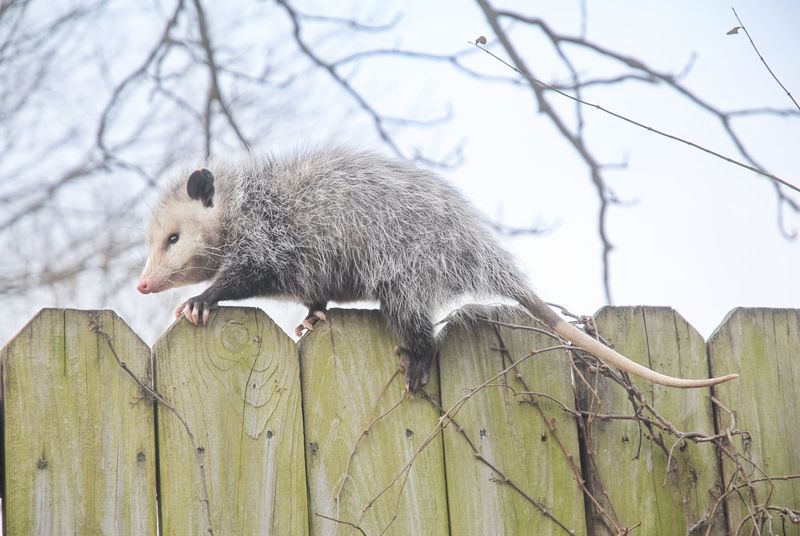
Multiple possums taking residence under structures signals time for professional help. Last winter, a mother and babies settled beneath my Arizona home’s deck, creating concerns about potential structural damage.
Aggressive behavior, while extremely rare in possums, warrants immediate professional attention. Normally, possums prefer flight over fight, but any wild animal can become defensive if cornered or ill.
Repeated garden destruction despite deterrents might require expert intervention. A wildlife specialist can identify entry points and behavior patterns that homeowners might miss, creating targeted solutions for persistent possum problems.
8. Protecting Your Arizona Garden After Possums Are Gone
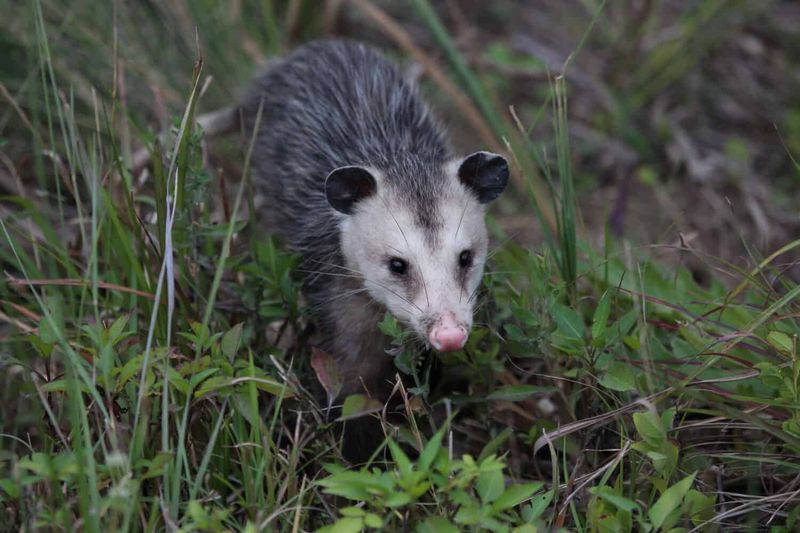
Garden cleanup becomes essential after possum removal. Fallen fruits and vegetables attract new wildlife visitors, so I’ve made daily collection part of my Arizona gardening routine, especially during harvest seasons.
Securing compost bins prevents creating unintentional feeding stations. My switch to a closed tumbler system eliminated the midnight buffet my open compost pile once provided to neighborhood possums.
Regular maintenance of exclusion methods ensures lasting protection. Seasonal checks of fencing, tree guards, and deterrents have kept my Arizona garden possum-free since implementing a comprehensive approach rather than focusing on removal alone.

